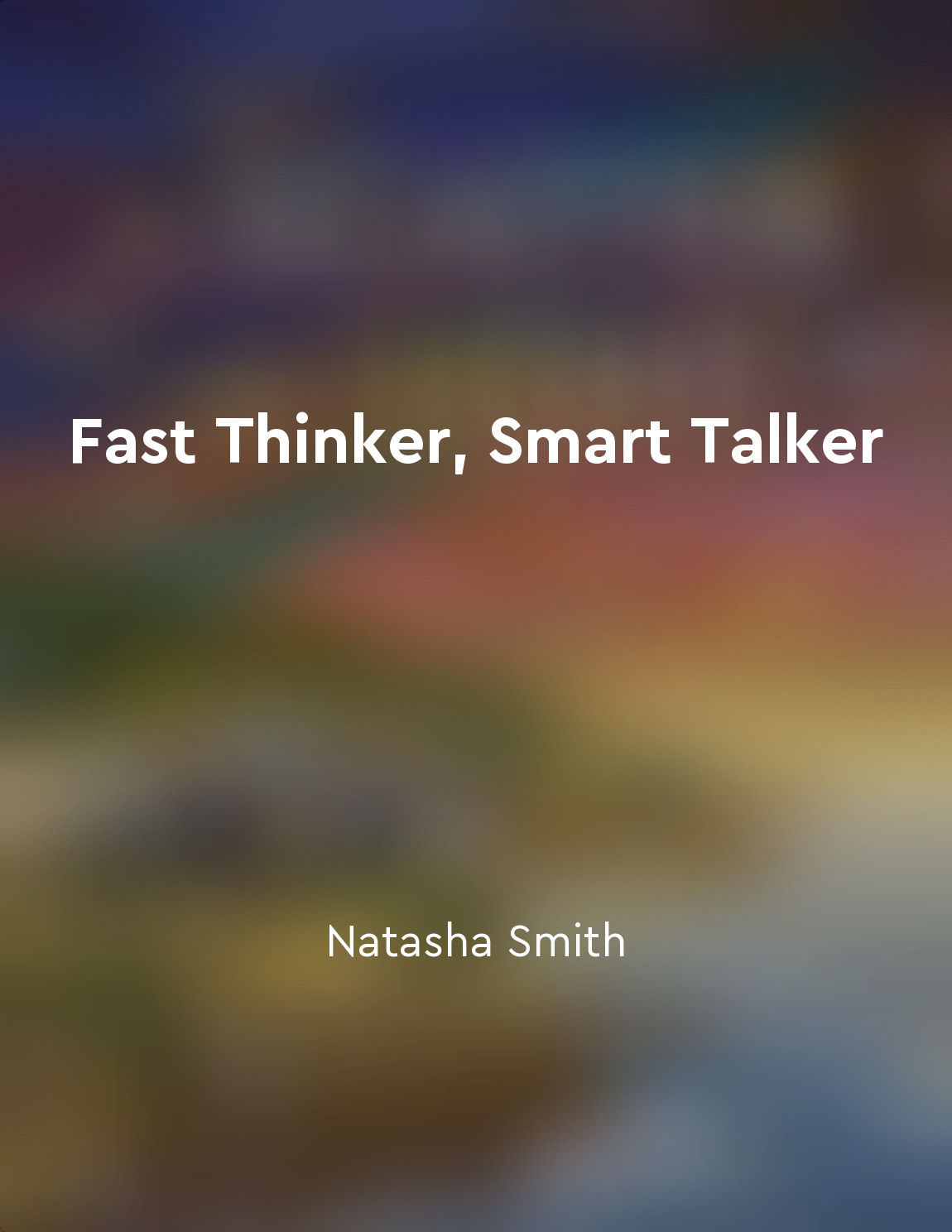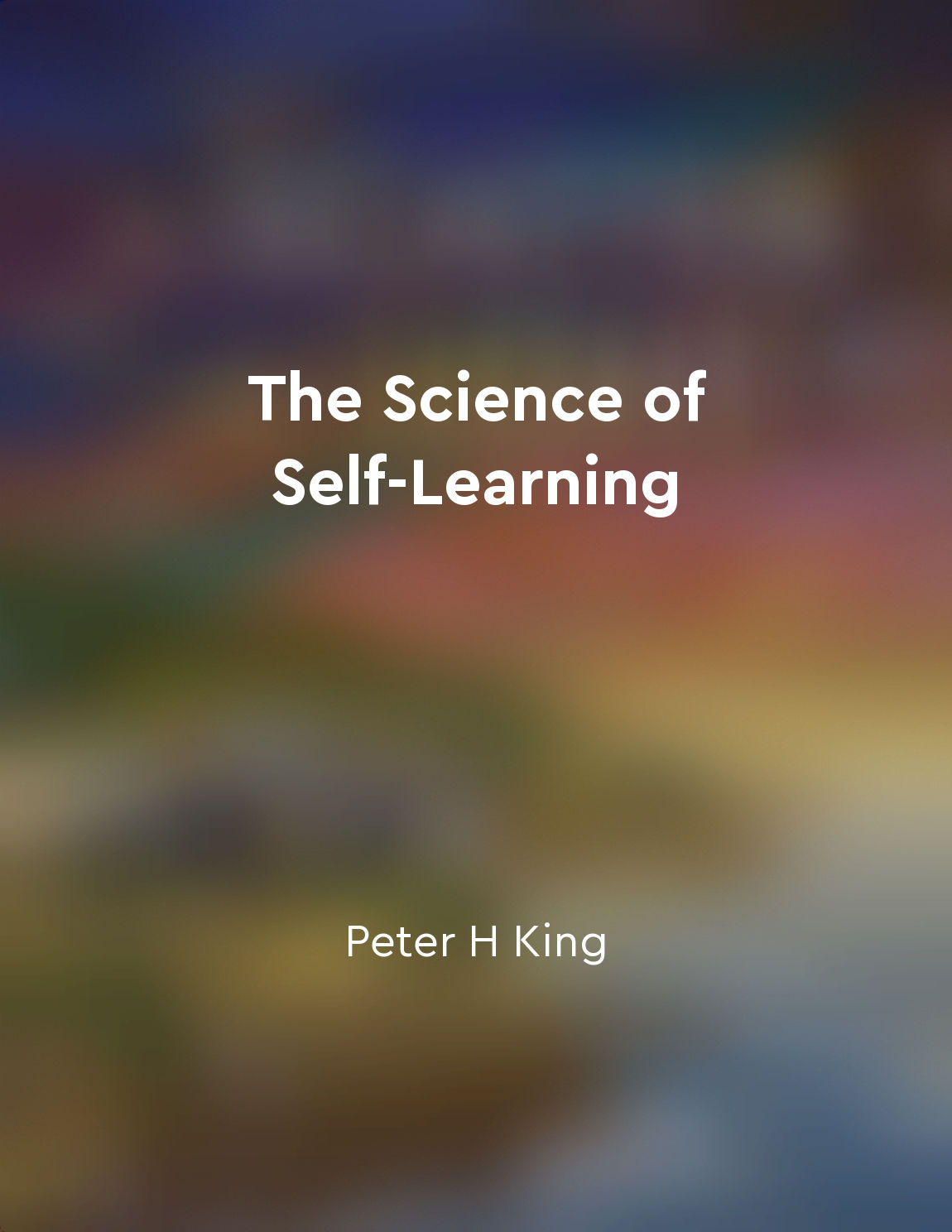Engage in selfreflection to refine problem-solving skills from "summary" of Cracked it! by Bernard Garrette,Corey Phelps,Olivier Sibony
To become a better problem solver, it is crucial to take a step back and engage in self-reflection. By looking inward and critically evaluating our problem-solving approaches, we can identify areas for improvement and refine our skills. This process allows us to gain insights into our strengths and weaknesses, as well as the strategies that have proven effective in the past. Self-reflection involves asking ourselves tough questions about our problem-solving process. We need to consider what worked well in previous situations and what could have been done differently. By examining our thought processes, decision-making, and actions, we can pinpoint areas where we can make adjustments and enhance our problem-solving abilities. One effective way to engage in self-reflection is to keep a journal or log of our problem-solving experiences. By documenting our challenges, decisions, and outcomes, we can track our progress over time and identify patterns in our problem-solving approaches. This practice enables us to learn from our past experiences and make informed adjustments for future problem-solving situations. Another helpful strategy is to seek feedback from others on our problem-solving capabilities. By soliciting input from colleagues, mentors, or trusted advisors, we can gain valuable perspectives on our strengths and weaknesses. Constructive feedback can provide us with new insights and ideas for refining our problem-solving skills.- Self-reflection is a powerful tool for refining our problem-solving skills. By taking the time to critically evaluate our approaches, seek feedback from others, and learn from our experiences, we can continuously improve as problem solvers. Embracing self-reflection as a regular practice can help us develop a deeper understanding of our abilities and become more effective in tackling complex challenges.
Similar Posts
Overcoming barriers to learning
Learning requires active participation and engagement from the learner. However, there are often barriers that hinder the learn...
Inattentional blindness causes us to miss visible objects
Inattentional blindness is the phenomenon that causes us to miss visible objects when our attention is focused elsewhere. When ...

Cultivate a growth mindset
To cultivate a growth mindset is to embrace challenges, persist in the face of setbacks, see effort as the path to mastery, lea...
They value clarity and precision in communication
The importance of clarity and precision in communication cannot be overstated. When individuals value clarity and precision in ...
Focus on your contributions
When it comes to managing oneself, a crucial concept to keep in mind is the idea of focusing on your contributions. This means ...
Practice exercises for concept reinforcement
Practice exercises for concept reinforcement are an essential component of the learning process. These exercises are designed t...
Embrace challenges as opportunities for growth
When faced with challenges, it's easy to feel overwhelmed and discouraged. But what if we shift our perspective and see these c...

Stay organized in your thoughts
Being organized in your thoughts is like having a well-structured filing system in your brain. Just as you would neatly categor...
Learn to adapt to challenges with flexibility
Adapting to challenges with flexibility is a key component of resilience. When faced with difficult situations, it's essential ...

Embracing failure as a learning opportunity
In the pursuit of self-learning, one must be willing to accept and learn from failure. Failure is not the end of the road; rath...

